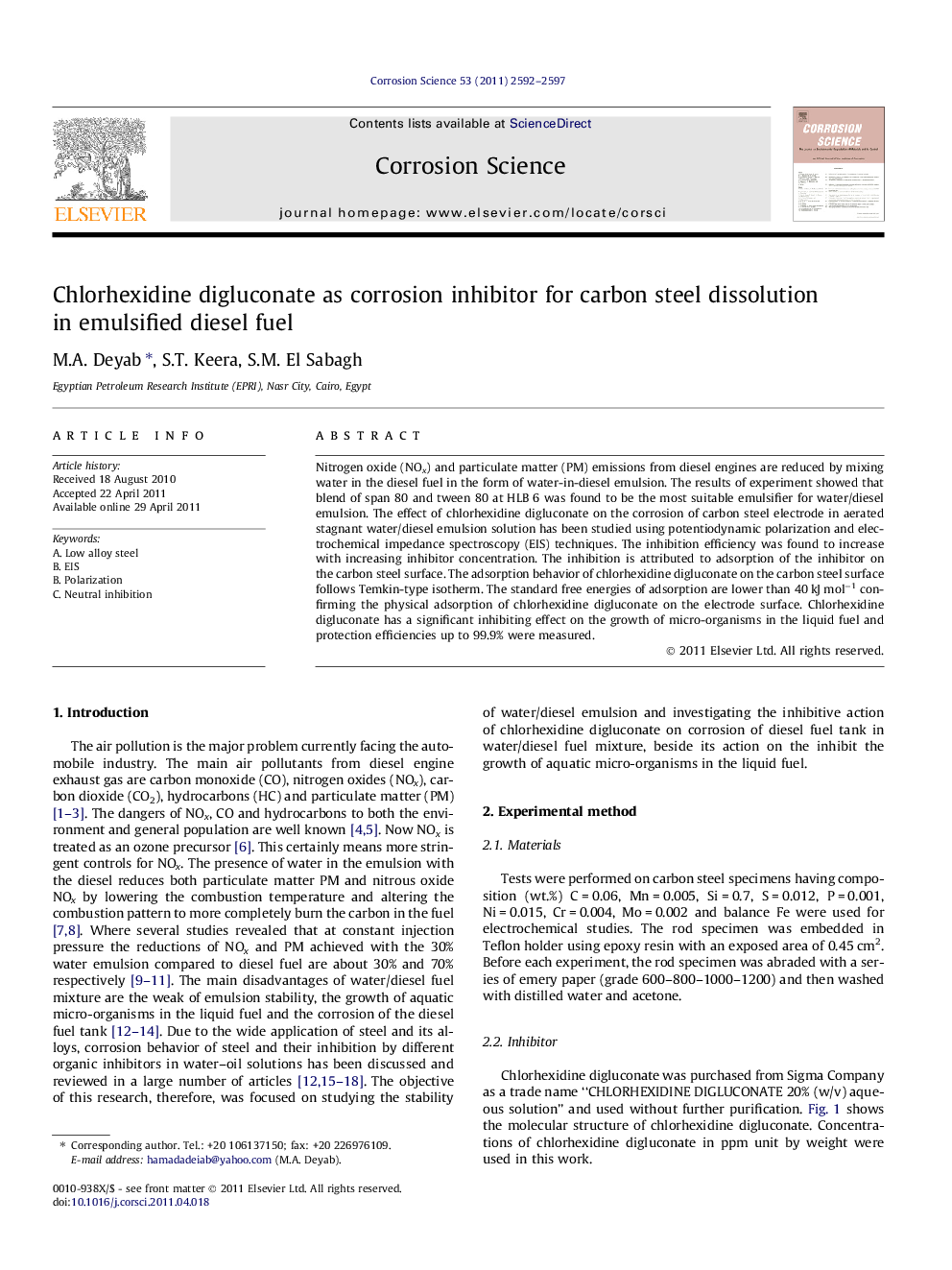| Article ID | Journal | Published Year | Pages | File Type |
|---|---|---|---|---|
| 1470026 | Corrosion Science | 2011 | 6 Pages |
Nitrogen oxide (NOx) and particulate matter (PM) emissions from diesel engines are reduced by mixing water in the diesel fuel in the form of water-in-diesel emulsion. The results of experiment showed that blend of span 80 and tween 80 at HLB 6 was found to be the most suitable emulsifier for water/diesel emulsion. The effect of chlorhexidine digluconate on the corrosion of carbon steel electrode in aerated stagnant water/diesel emulsion solution has been studied using potentiodynamic polarization and electrochemical impedance spectroscopy (EIS) techniques. The inhibition efficiency was found to increase with increasing inhibitor concentration. The inhibition is attributed to adsorption of the inhibitor on the carbon steel surface. The adsorption behavior of chlorhexidine digluconate on the carbon steel surface follows Temkin-type isotherm. The standard free energies of adsorption are lower than 40 kJ mol−1 confirming the physical adsorption of chlorhexidine digluconate on the electrode surface. Chlorhexidine digluconate has a significant inhibiting effect on the growth of micro-organisms in the liquid fuel and protection efficiencies up to 99.9% were measured.
► Water/diesel emulsion stability reaching a maximum value at HLB 6. ► Chlorhexidine digluconate show good performance as micro-organisms growth inhibitor in the liquid fuel. ► Chlorhexidine digluconate is considered as an efficient corrosion inhibitor for carbon steel in water/diesel emulsion. ► The inhibitive action of chlorhexidine digluconate takes place through the physically adsorption on the metal surface. ► The adsorption of Chlorhexidine digluconate on a carbon steel surface obeyed the Temkin adsorption isotherm.
